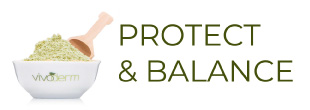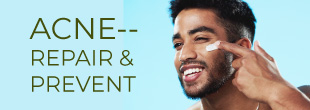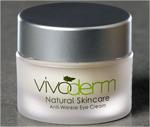Skin Care Ingredients to Avoid
Many consumers are frustrated by skin care products that don’t do what they claim to. Worse still is investing in an expensive yet ineffective cream or treatment only to discover the cheapest drug-store brand would work just as well. In a world of hyper-consumerism, false advertising and a plethora of products from which to choose, how do you choose the good from the bad?
There are some great products on the market that can genuinely improve your skin’s appearance and help your skin look smoother, more radiant, and youthful. But, there are literally thousands of products to choose from and unless you spend hours a day researching beauty products, it’s difficult to find the one of the few that actually produces real results and eliminates years of aging from your face and body.
As the law of supply and demand proves, the higher the demand for youth and beauty, the more manufacturers will rush to provide the solution. Many times this rush results in the creation of an inferior product with little to no research and development to back it.
Caveat Emptor – or “let the buyer beware” – is the rule to live by. Do your homework. Know where you are “voting” your hard-earned money. If it is important to you, make sure you are investing in a quality, skincare ingredient backed by proven results. If the environment and being ‘green’ is important to you, then be aware of the manufacturing practices of the company and product you support with your purchase.
Ingredients to Avoid
Due to certain preservative requirements, many skin care products are unfortunately loaded with ingredients that actually harm your skin over time. Following are a few prominent ingredients widely used in skincare products to day and are to be avoided if you prefer you skincare to be more natural or organic.
• Mineral Oil. This oil has been used in literally hundreds of products. Mineral oil may also go by the alternative names liquid paraffin, paraffin wax and petrolatum on the product label. Mineral oil is used pervasively in skin care products as a moisturizing agent due to its low cost.
Mineral oil, once applied, is meant to ‘trap’ moisture in the skin, but once applied, actually prevents the skin from “breathing.” As such, it clogs pores, interferes with your skin’s natural ability to eliminate toxins, and can lead to acne flare ups. Also, it is irritating to the skin and if used for any length of time, your skin can become dependent on it, causing chapping and dryness. Lastly, it can lead to premature aging of the skin.
• Dioxane: (a synthetic derivative of coconut). This substance is widely used in skincare products. It often contains high concentrations of 1,4-dioxane, which is readily absorbed through the skin. In the State of California, 1,4-dioxane has been reported as “known to cause cancer.”
• Fragrances: No one wants to smell bad, but if you want to be on the safe side, you are better off choosing an organic essential oil or diluted cologne, hydrosol or even a bodyspray. Your skin care products typically contain chemically engineered fragrances to mask the unpleasant “chemical odor” of the foundational product itself. Many of these masking fragrances are produced from ingredients that are known to be toxic or carcinogenic.
Your skin is the largest organ of the body. Anything you put on it can be easily absorbed through the pores. When you use skin care products, they are typically applied all over the face, neck, and body. This covers a lot of surface area and, therefore, a great deal of chemical absorption occurs. However, with perfumes and colognes, you can achieve what you want by a small dab here and there, which will result in less chemical absorption overall. If you really want a beauty product to smell great without the harsh side effects, try buying a fragrance-free product and add your own essential oil blend. You can customize a whole line of products with you won signature scent!
• Parabens: methyl, propyl, butyl, and ethyl paraben. Many skin care products (and moisturizing products) will use parabens as a preservative so their products have a long shelf life. The reason is purely economical. However, studies suggest that they may cause cancer and interfere with the body’s endocrine system, as well as causing allergic reactions and skin rashes.
• Alcohols: ethanol, ethyl alcohol, methanol, benzyl alcohol, isopropyl alcohol and SD alcohol. Not all alcohols have the same properties, but these, which are commonly found in skin care products, are very drying and irritating for the skin. Alcohols such as these strip away the skin’s natural acid mantle, making you more vulnerable to bacteria, moulds and viruses.
Now that we’ve looked at some of the bad, let’s examine some of the good ingredients and some ingredients that sound good but in fact aren’t.







 Zinc Oxide Creams
Zinc Oxide Creams 



